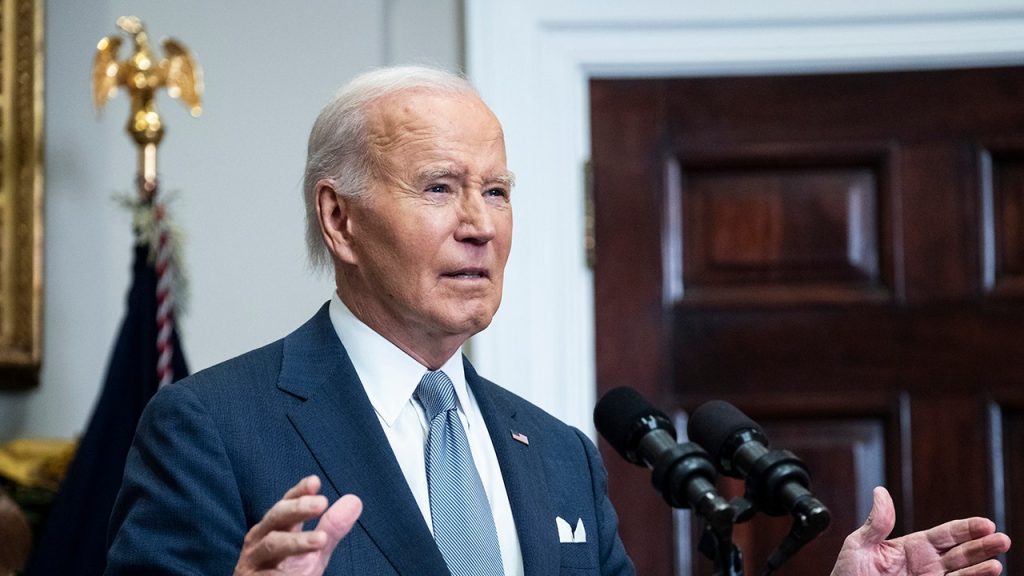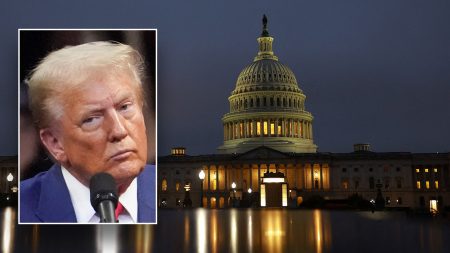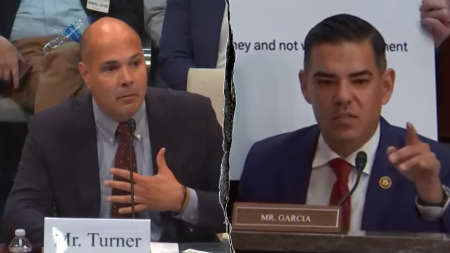The Biden administration is embarking on a final sprint to solidify its green energy legacy before President-elect Donald Trump takes office, aiming to disperse a substantial amount of climate-related funding authorized under the Inflation Reduction Act (IRA). This aggressive push to obligate remaining IRA funds represents a strategic maneuver to safeguard the administration’s climate achievements against potential reversal by the incoming Trump administration. White House Chief of Staff Jeff Zients affirmed the administration’s commitment to maximizing the impact of the IRA in its remaining weeks, emphasizing the intention to disburse as much funding as possible to support climate-related projects and initiatives. This proactive approach underscores the Biden administration’s determination to establish a strong foundation for its green energy agenda before the transition of power.
The White House has signaled that further action on IRA funding is imminent, promising to accelerate the disbursement of remaining funds to a wide array of clean energy and climate resilience projects. This includes initiatives related to renewable energy development, electric vehicle adoption, energy efficiency upgrades, and climate adaptation measures. By rapidly deploying these funds, the Biden administration seeks to create a momentum that will be difficult for the incoming administration to reverse. The administration believes that initiating projects and creating tangible benefits for communities across the country will make it politically challenging for the Trump administration to dismantle these investments.
The administration’s push to cement its climate legacy comes amid indications that President-elect Trump intends to undo key aspects of the IRA, which he has criticized as a wasteful spending program. While some House Republicans have expressed reservations about a complete repeal of the IRA, suggesting a more targeted approach to revisions, the overall direction of the incoming administration appears to be towards scaling back the ambitious climate agenda pursued by the Biden administration. This potential clash of policy priorities underscores the significance of the current administration’s efforts to solidify its climate achievements through the rapid deployment of IRA funds. The administration believes that by creating a groundswell of support for clean energy projects and demonstrating their economic benefits, it can build a strong defense against efforts to undermine its climate legacy.
The Biden administration anticipates that the rapid disbursement of IRA funds will create a sense of vested interest in the continuation of clean energy projects within communities across the country, including those in Republican-represented districts. By highlighting the economic benefits of the IRA, such as job creation and cost savings for consumers, the administration aims to generate political pressure against any attempts to dismantle these initiatives. White House spokesperson Andrew Bates emphasized the potential negative consequences of repealing the IRA, arguing that it would amount to a redistribution of wealth from working Americans to large corporations and foreign entities. He pointed to the significant job creation in the clean energy sector, particularly in Republican districts, as evidence of the IRA’s positive economic impact.
The administration also emphasizes the benefits accruing to American consumers through the IRA, citing substantial savings on clean energy upgrades and electric vehicle purchases. By showcasing these tangible benefits, the administration aims to build public support for its climate agenda and create a political environment that discourages any attempts to reverse these gains. The rapid disbursement of IRA funds is therefore not only a strategic move to secure the administration’s climate legacy but also an effort to create a broader constituency for clean energy and climate action. By demonstrating the practical advantages of these policies for American families and businesses, the administration seeks to ensure the long-term viability of its climate agenda.
The Biden administration’s final push to distribute climate funds represents a calculated effort to solidify its environmental legacy and create a robust foundation for continued progress on climate action. By rapidly deploying IRA funds and highlighting the economic and social benefits of its climate policies, the administration seeks to build a broad base of support that will make it difficult for the incoming administration to dismantle its achievements. This strategy underscores the administration’s commitment to addressing the climate crisis and its determination to ensure that the progress made during its tenure is not undone. The race to disburse funds and solidify projects represents a crucial moment in the ongoing battle over climate policy in the United States.










